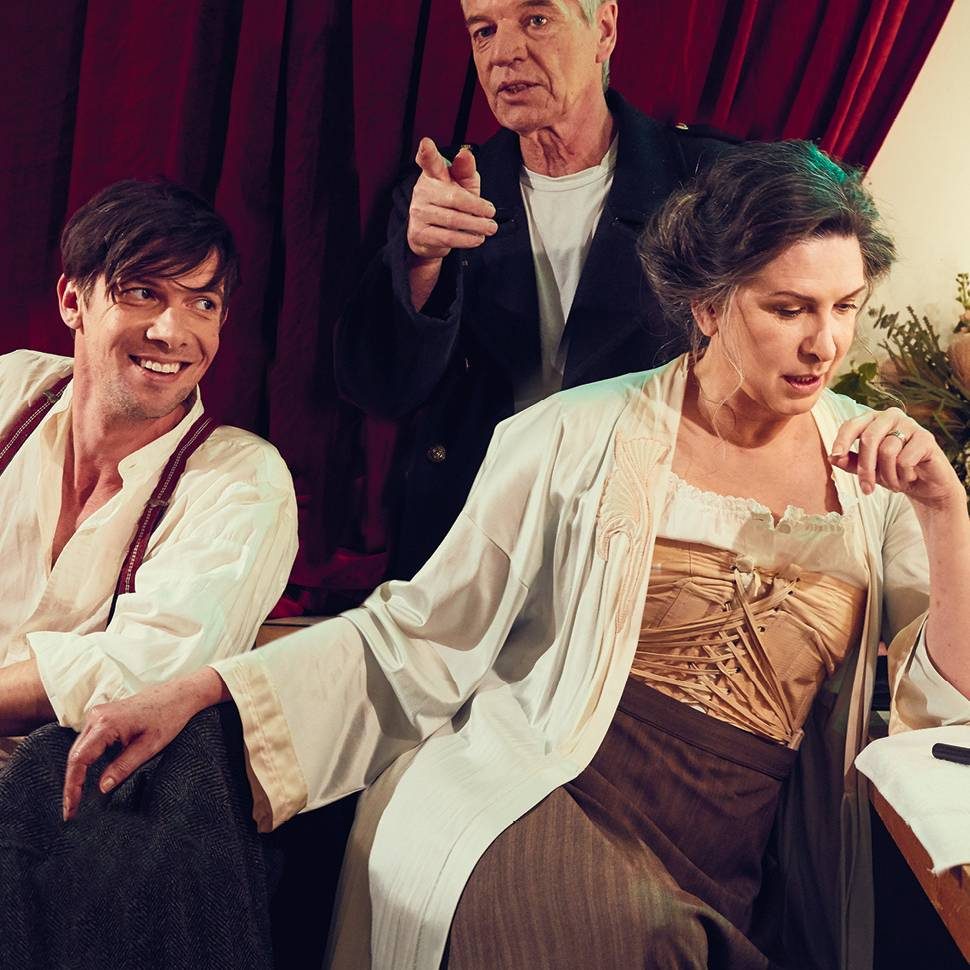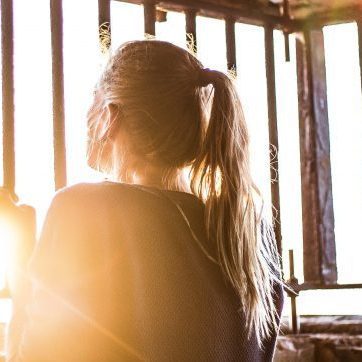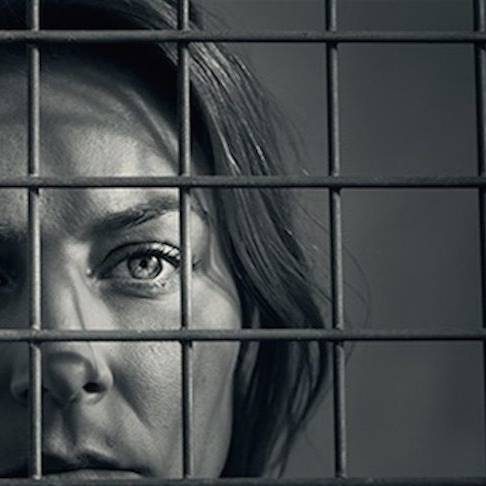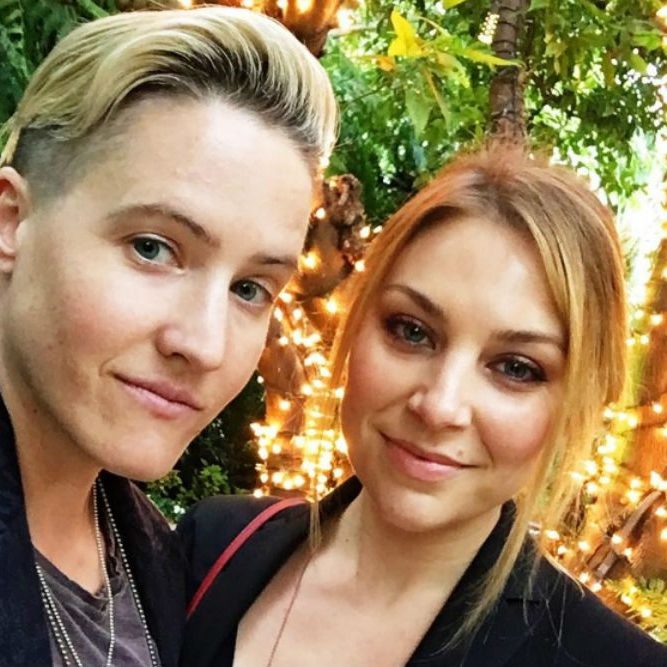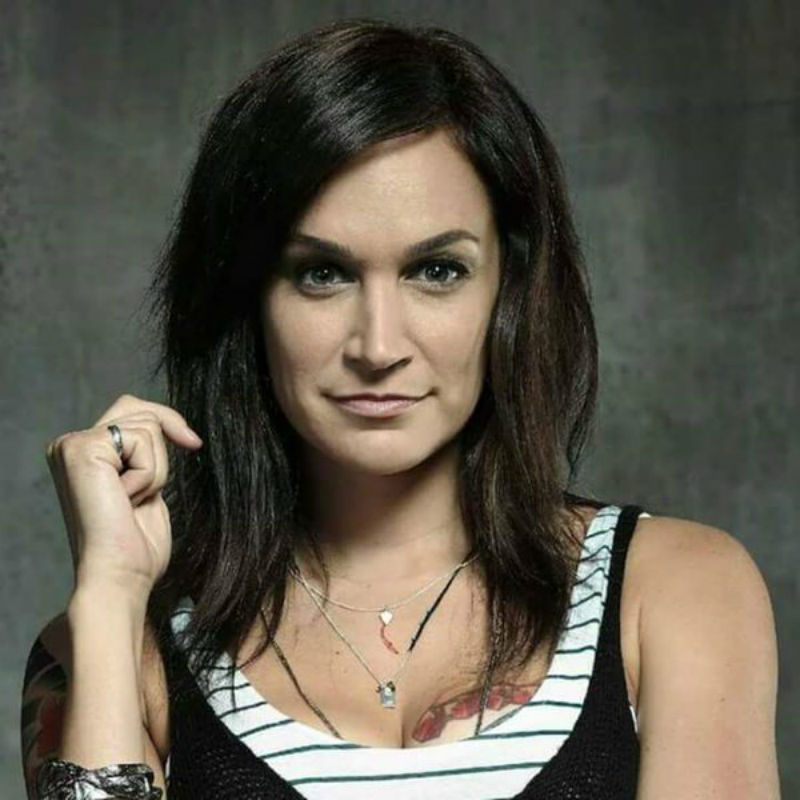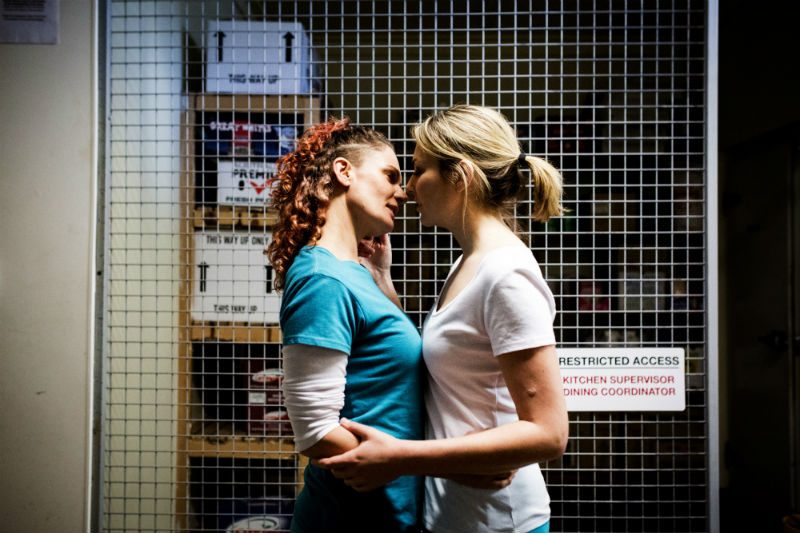 On the importance of being an out queer woman playing a queer character.
On the importance of being an out queer woman playing a queer character.
Kate Jenkinson burst onto our screens in Season 4 of Wentworth as Allie Novak, a love interest for Top Dog, Bea Smith.
She chats to us about the importance of being an out queer woman playing a queer character.
Thanks so much for joining me today for this chat. So many people love to see and hear from you, and you are doing some great things apart from filming Wentworth. But let’s start with that. What can you tell me about season 5?
It’s clouded in a shroud of mystery! But you saw the last episode of season 4, right?
Oh yeah, I cried for an hour after it!
So did I, and I knew what happened! I watched the episode on the Tuesday night it aired it was the first time I had seen it, and I lost my little mind.
Do you think there could have been more to explore with this relationship?
The risk is very high to kill off a storyline that still had so much potential, but it wouldn’t be so heartbreaking if it had happened in 20 years and Bea was older, and Allie had left the prison. We get so invested we want to fight for our characters’ survival. I know I do. We forget that it’s a TV show meant to be compelling and shocking, and in this case, it’s meant to do the last thing anyone would imagine.
What would have been really sad is if, to create the drama, they had reduced the love that Bea and Allie had, which was epic and Shakespearean when you look at it in hindsight, to women who get ripped apart and then get back together and break up again. It’s almost more respectful to the character to let her go out at the peak of her journey. At that point, she’d done everything, including find love, and even though it’s devastating to lose her at that moment, in a way, it’s the perfect Shakespearean tragic ending. She designed her death, and she was happy with it.
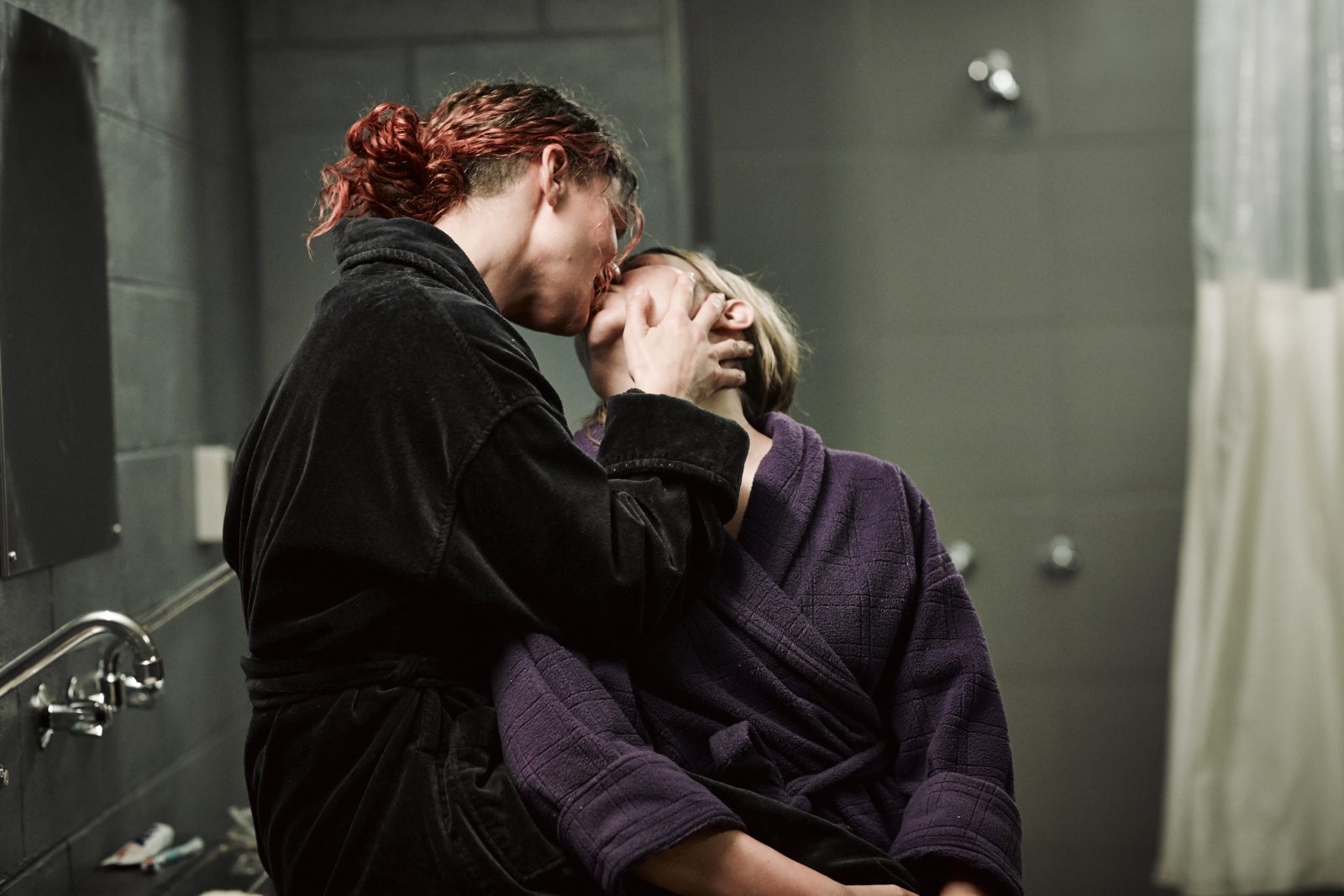 I read that right until the end, you didn’t know this would happen.
I read that right until the end, you didn’t know this would happen.
No! And my reaction was probably similar to the viewers’ reactions. My initial thought was, ‘well, how does this work?’ How does the show continue without the central character? And I thought it was potentially a very big mistake. And who knows how season 5 will be received?
But I’m confident with what I’ve seen and read so far of season 5. I’m highly invested in seeing what happens in the prison post-Bea. I’m sure even our most scandalised fans will be as well.
What was it like for you to come into such an established and well-loved show with, as you said, such passionate fans?
It is incredible the amount of online sleuthing our fans get up to because I was sent fan mail before I was even on the show! I did feel a sense of responsibility because the cast and crew, the producers and the writers had created this juggernaut of a TV series, and I was a fan of it before I was involved in it.
So I felt a responsibility, to quote actors on set, ‘not to fuck it up! I had to make Allie someone people could believe in and invest in. Bea desperately deserved some kind of respite and love, an escape from her world, and that’s exactly what she got in the end. It wasn’t where she wanted it to be, but she did escape, she got out of prison and she probably never thought that she would.
So, now that there’s no Bea, what does Allie’s story become?
KJ: My initial reaction was a naïve one – ‘If I’m not Bea’s girlfriend, then who am I?’- which is a very narrow-minded way of looking at my character. Bea’s death makes Allie a much more interesting character. For the first time in her life, she was so close to being with someone she loved and who loved her in return, and despite the apparent dangers, Allie felt relatively safe within the prison walls.
But now she has none of that, she’s not safe, she has no one, and her love has been ripped away. There will always be drugs in prison, so she’s exposed to that. She’s vulnerable, devastated, heartbroken and dangerously obsessed with revenge, so that’s a far more interesting character than a happy girl with a crush.
You had beautiful on-screen chemistry with Danielle. It felt so authentic, and once you got together especially, it crackled. You must have had a great working relationship with her to achieve this?
KJ: I adore her! When I arrived on set, I didn’t know her, but I held her in reverence.
My journey and Allie’s were similar because I had a talent crush on Danielle. Still, as we got to know each other and our relationship solidified and deepened, we fell into this fun and easy friendship, much like Allie and Bea. However, theirs had the added romantic element. I feel like a good enough actor can manufacture a convincing level of chemistry, but it’s invaluable and a tremendous gift if you adore the person you have to go on that journey with, and it was so much fun working with her on this relationship. It never felt awkward or weird, it always felt organic and truthful.
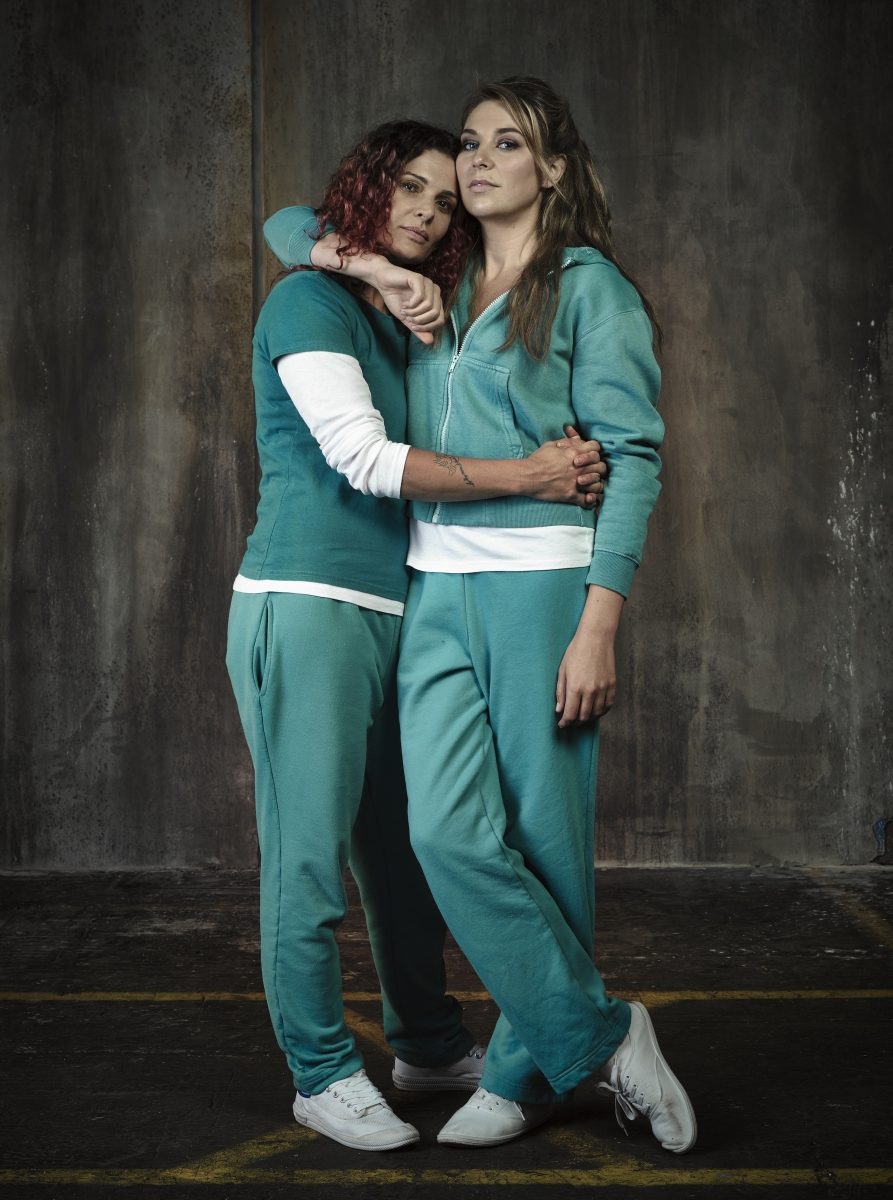 It came across as all of that – and I imagine as an actor that’s what you’re aiming for in any role, that authenticity, but mainly when you’re playing two people falling in love. And Allie was so sweet and caring, she never pushed Bea. Now a lot of that is to do with the writing and the script you’re given, but you also brought that gentle, emotional pursuit of Bea, which added to that truthfulness. How did you find out who Allie was, and how she should go about that?
It came across as all of that – and I imagine as an actor that’s what you’re aiming for in any role, that authenticity, but mainly when you’re playing two people falling in love. And Allie was so sweet and caring, she never pushed Bea. Now a lot of that is to do with the writing and the script you’re given, but you also brought that gentle, emotional pursuit of Bea, which added to that truthfulness. How did you find out who Allie was, and how she should go about that?
When I was presented with this character, I just understood who she was, where she had come from, and why she would be so instantly attracted to Bea, and I knew that the character had to be very different from the other openly gay character on Wentworth, Franky.
It would take a lot for Bea Smith to take her walls down and open herself up to someone regardless of the gender of that person. It was going to take an added something for her to be able to open herself up to a woman because I don’t think Bea ever identified as gay or bisexual or queer or even remotely attracted to women.
So in my mind, I always imagined Allie, it sounds silly, but I imagined her as this big warm blanket. You know when you’re being held by someone you love, it’s like all the world’s worries magically disappear? I felt that Allie had to be someone like that, someone who knew who she was and who was at peace with her incarceration.
I tried to make Allie this calm, inviting, non-threatening oasis of a character, someone who the audience could understand why Bea surrendered to her. So if Allie had been a brutal alpha lesbian who could click her fingers and seduce any woman she wanted, while that’s very attractive to many people, I don’t think that’s what Bea needed or wanted. Allie had to represent safety and comfort, be trustworthy, and be vulnerable because Bea spent her entire life both inside and outside prison dealing with dominating adversaries – her husband, Ferguson, Franky, and then Kaz in season 4. I felt like Allie needed to be the antithesis of all that.
People will want to know about the sex scene. Did you sit down beforehand and talk about how you wanted to approach it, what it meant, and what you wanted the characters and the audience to get out of it?
Yes, we had a long discussion with the director about how it should look, what it should say, what kind of music would be played. I learnt a good lesson: always listen to your director because I was looking at it too logically! I was looking at it from the point of view of the kind of thing a woman would need sexually to reach climax. I was a bit too caught up in the logistics of a woman having sex with another woman, especially in this case, a woman who had never had sex with another woman.
I felt like we were maybe leaving elements of lesbian sex out. Still, the director was brilliant, and he understands the dynamics of television and storytelling much better than I do. He made me realise that it’s about the connection, the trust, and about Bea finally stripping down all her walls and being completely vulnerable. So I learned it’s not always about what is most logical, it’s what tells the best story, and I think the director did a really beautiful job with that scene.
That’s interesting because if you take a step back and look at the mechanics of what’s going on, you might think… hmm, I don’t think so.
(laughs) Oh yeah! And to be honest, I have a problem – in general – with how easily women orgasm on screen, I’m like? That’s all it takes you? If only it were that easy! But we weren’t telling the story of how easy it was for Bea to have an orgasm; we were telling the story of her completely surrendering herself to another human being.
You mentioned before that you felt that Bea would never have identified as queer, and I agree. The writers and producers allowing her to fall in love with a woman was a big step in today’s lesbian, bisexual and queer women representation. But while losing Bea as a character – and Danielle as the actor – would have been mourned anyway just because of who she is, the fact that it was, under those circumstances, made it all the more painful for a queer audience.
Despite all the progress we’ve made in general with diverse representation on screen, I feel like we still have such a way to go. I think it made it much more cutting to have a queer character or to have a queer couple ripped apart again because it happens so often, and I don’t know the answer, but it’s an interesting question to ask.
Is it more important to have queer relationships represented onscreen continually, or is it more important to tell the most compelling and logical story within the world of that show? Even though I mourn the loss of that relationship and everything that Ballie represented for the LGBTQI community and within the prison walls, I feel like, from a purely dramatic, televisual perspective, it was such a kick-arse decision to make; it was so bold, so brave. As a viewer, I felt what a great and crazy and daring choice to make.
So I don’t know what’s right and what’s wrong. Do we continue to foster queer relationships on-screen even if it doesn’t serve the best storyline? I don’t know. I’m pretty intrigued by that question: What is the greater good? Is it better to tell truthful, heartbreaking real-life stories, or is it better to infuse the world with better and more diverse representations of relationships?
Nice segue for me into real-life stories! You were talking about fan sleuthing – and I’ll admit I found out about you and Torri from others doing the sleuthing work – but when people found out that you have a girlfriend and put up screenshots of her Snapchat of you together, things went nuts, and it was out immediately.
I think we were a bit naïve initially putting those on Snapchat; we didn’t realise what the reaction would be, but once it was out, it was out, and we’re happy to be together, so it’s not something that we feel like we need to hide.
The fact that you’re in a same-sex relationship spreads like wildfire. Online commentators, who follow celebrity gossip were asking the question: is it true? Can we pop the champagne corks? Is she one of us? So there was a lot of excitement about that.
(laughs) That’s fabulous! I feel prouder than anything else because if people feel I have somehow represented them or our community positively, that’s unbelievable. That’s something that I am incredibly proud of, even more than being part of this show.
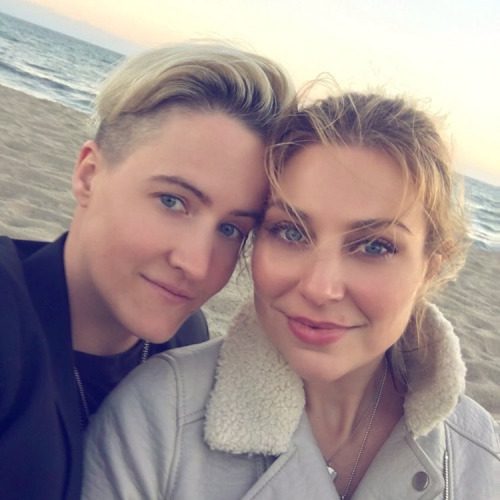
As a celebrity, did you ever officially come out?
No, I’ve had relationships with men in the past, fantastic relationships. Still, now I’m reflecting on it, I must have an incredibly unique story in that I never thought it was weird to like guys and girls, be in a relationship with guys, but also find women attractive, and vice versa. It just never entered into my world of possibility that it was wrong or bad to like both men and women. So no, no great coming out story for me. If you’ve met the right person, it doesn’t matter what gender they are.
And it’s interesting that people still can’t wrap their heads around that idea. Shit, the Australian government, for example! It seems so simple to me that it just doesn’t fucking matter! How bad is it that a Catholic country like Ireland beat us to marriage equality?
The main image we still get of life on the news, on the radio, every time we turn on the television, we watch movies – it’s a very white, very straight, very middle class, very vanilla representation of humankind. And it’s just not that way; we’ve made leaps and bounds in representing race diversity on our screen, and the LGBTQI community have a representation and a voice on our screens, but it’s not far enough. We haven’t got there yet, but we are getting closer.
That’s a great description – ‘vanilla’. That is not representative of who we are and what this country should be about these days.
And I think that is because this country is still, and will be for a while, run by white, middle-class, straight men, who probably all went to private schools and support this ethos. They have this unshakeable mindset that this is expected, and anything that isn’t is pushed to the outer or is something we shouldn’t discuss.
The world of politics couldn’t be more vanilla, but I think the further along we get, we’ll have more Penny Wongs in politics, we’ll have people who are a little more understanding of where this country needs to head if we’re looking for equality.
You’ve been doing some meet and greets lately, primarily to raise funds for charity – tell me a bit about that.
We’ve been raising funds for Tangible Movement, a not-for-profit organisation aiming to provide education, awareness, inspiration and support to young adults struggling with depression, addiction, sexual and gender identity issues and abuse.
I was introduced to TM via my partner Torri, who founded the corporation. I asked her what I could do to help, and she suggested that I take on the role of an ambassador. Growing up personally affected by mental illness, I am passionate about raising awareness for those suffering. I believe that depression and mental illness are issues that are hugely underrepresented in Australia, and I want to be a part of shining a light on that. I have always been a massive advocate for LGBTQI rights and representation, which appealed to me. I have been supporting human rights and animal rights charities for years, and this is a further step for me to give back.
So, sum up your final thoughts on being a part of a great show like Wentworth and its role in LGBTQI representation on Australian TV.
On a purely selfish level, this is a fabulous job I get to go to each day, but on a bigger global level, it’s beautiful to be part of something that touches so many people and engages in a way that I’ve never been a part of before. And as well, this show gives something to the LGBTQI community, and it indeed has struck a chord with our community, and that’s a great thing. If a television show’s only real purpose is to entertain – and make money – if it also manages to touch people personally, then I think we’ve done something right. I am so pleased that I can be a part of something that has given a voice to our community. For people to turn the television on and see themselves represented gives our community the chance to feel truly validated.

